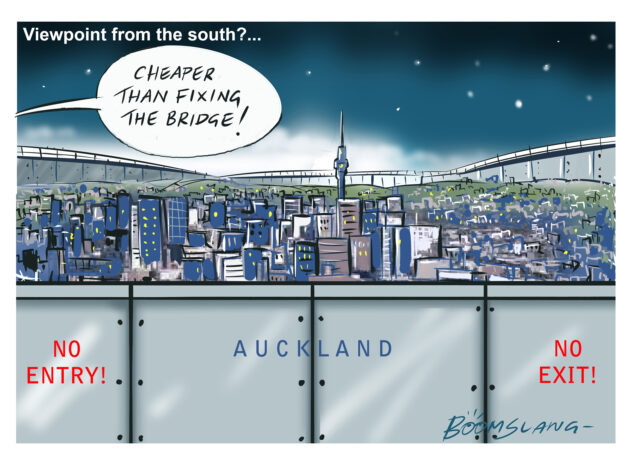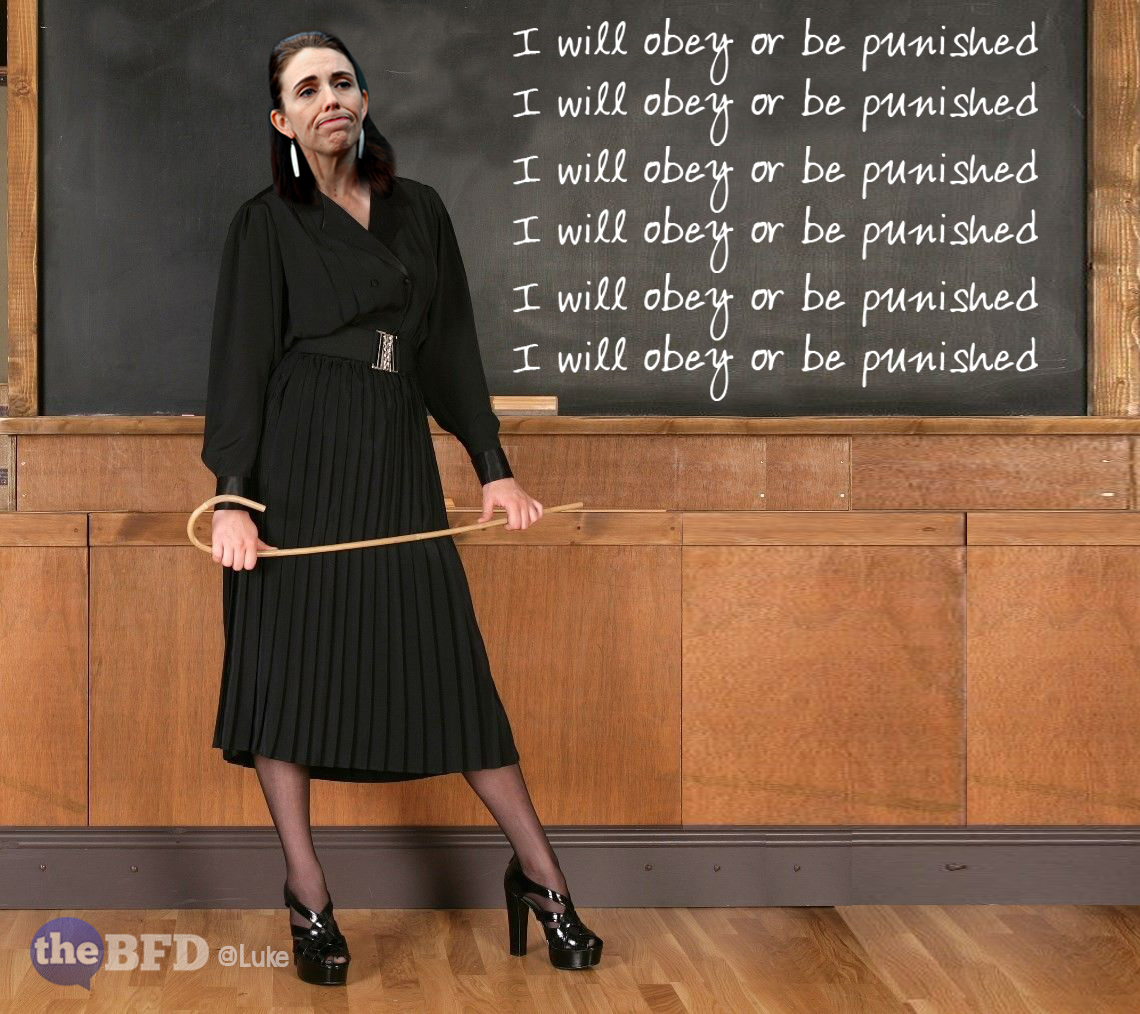I began writing this week’s column on Sunday after the late previous night’s announcement that we Aucklanders had been sentenced to another seven days of home detention because some South Auckland clot couldn’t (or wouldn’t) follow instructions about self-isolation after infection with Covid-19.
I hear what Auckland City Councillor Efeso Collins has said about not being so hard on offenders that they will hide their evasions of responsibility but, on balance, I feel that a strong message of deterrence is necessary, such as solitary confinement on bread and water only, for as many weeks as the number of days the community has to bear the brunt – in this case, seven weeks.
But here we are in lockdown again! This is past the point of mere “lockdown fatigue”, it is a lockdown too far; and one that Ardern, in her use of “over-Covidence” as a cover to conceal her government’s dismal record of all talk and no walk, will come to see as the lockdown she could have, and should have, avoided.

Veteran former Labour Minister and ACT leader Richard Prebble hits the nail on the head yet again in the New Zealand Herald when he asks why the government didn’t take up the suggestion of Trade Me founder Sam Morgan, in March last year, that a cheap universal Bluetooth card would and could quickly trace any community outbreak. Sam’s Bluetooth cards would have quickly traced the latest community transmission without the need to lockdown. Richard explained that Taiwan, a country of 23 million, has had fewer Covid-19 cases and no lockdowns. Their app does work.
So what’s a suitable lockdown topic? This week I have two, the first of which is an extension of last week’s theme of the other insidious infection spreading throughout our country: wokeism.
I was reminded of this when I came across a post by Dr Muriel Newman on her NZ Centre for Political Research back in November last year, which I missed at the time of its initial publication, and which I now recommend as a compulsory read for anyone who, like me, missed it then.
This extract from an address by Ardern last year to a Gates Foundation off-shoot should be enough to scare you into reading Muriel’s piece:
“…my Government is doing something not many other countries have tried. We have incorporated the principles of the 2030 Agenda into our domestic policy-making in a way that we hope will drive system-level actions… I believe that the change in approach that we have adopted in New Zealand is needed at a global scale…”, said Ardern.
The event was arranged by Goalkeepers, an organisation set up by the Gates Foundation in 2017 to accelerate progress towards the 17 Sustainable Development Goals of the UN’s Agenda 2030.
Muriel goes on:
“It’s a shame Jacinda Ardern was not so upfront with New Zealanders when she decided to take the country down this experimental Agenda 2030 path. Most Kiwis would be completely unaware that not only have we adopted UN doctrine, but we are also apparently leading the world in gender equality and women and girls’ empowerment.
While the Ardern Government has not hidden the fact that it is committed to implementing the UN’s Sustainable Development Goals, they most certainly have not been open and transparent about the agenda that underpins those goals – nor the policy implications of “eliminating inequality”.
“Agenda 2030 featured in the 2017 Confidence and Supply Agreement between the Labour Party and the Greens – although not by name. Instead, the parties made a commitment to the 17 Sustainable Development Goals that underpin Agenda 2030.”
The second topic is the determination of prominent wokes, such as the chairman of the Climate Change Commission, Dr Rod Carr, to change the geographical and international brand name of our country from New Zealand to Aotearoa. In his recent, ponderous 17-chapter, 650-page fantasy posing as a report on adaptation to climate change, Carr, who gave preference to his organisation’s Maori name, He Pou a Rangi, referred a nauseatingly number of times just to “Aotearoa”, rather than to New Zealand.
Although I am sufficiently attuned to te ao Maori to be learning to speak te reo and can recite my pepeha with reasonable fluency, I have three main reasons for objecting to this:
- The fact that it is a prime objective of wokesters who are infecting our land with their addiction to wokeism;
- I spent the latter part of my working life, as inaugural CEO of the Wine Institute of NZ, introducing the world to the unique qualities of New Zealand wine, now our sixth most valuable export good, earning just over $2 billion annually through sales to over 100 countries where its label proclaiming its origin is usually the only evidence on a dining table of its source. Thus, I have come to know the incalculable value of our international brand name “New Zealand”.
- As a proud pakeha of Irish ancestry, I am well aware that alternative names have their place in legend and lyric: in the case of Ireland, the Gaelic name Eire and the poetical name Erin. I myself use Aotearoa in conversation with Maori mates, or when the context makes it appropriate.
What really gets my goat is the increasing use of the tortuous tautology: Aotearoa New Zealand, which I regard as the height depth of wokeism. Among my many friends and relations with Irish connections, I have never once heard them refer to Eire Ireland. As with the song, “Let Erin Remember” I can envisage the day when some Kiwi will write “Let Aotearoa Remember” which we all may have to do when the Ministry of Education launches its coming rewrite of pre-Treaty history.
Please share this BFD article so others can discover The BFD.

